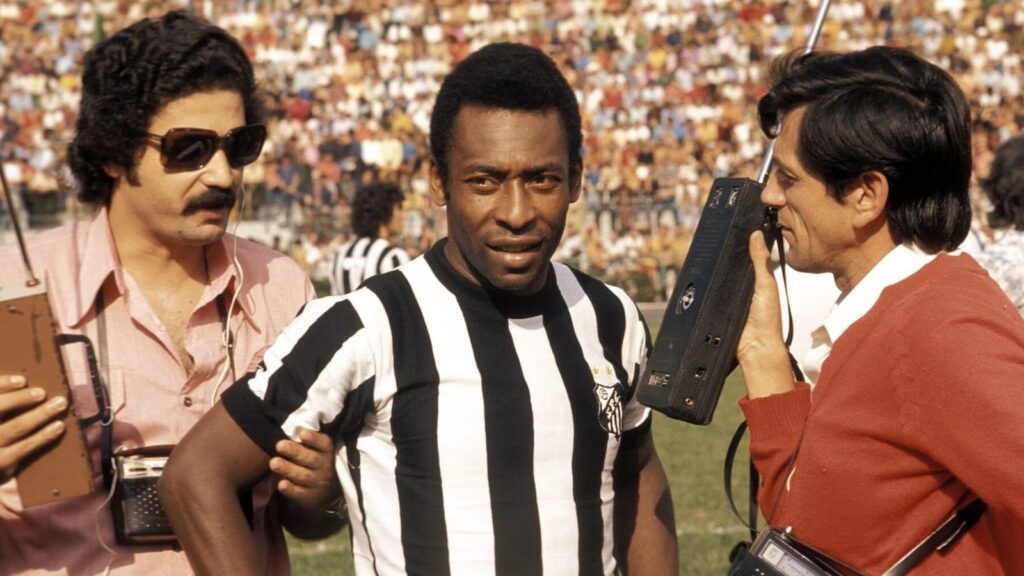Pelé made football a global way of life. Nicknamed “O Rei” or “The King,” he transcended being merely a footballer, as he was an artist on the field. He was the pioneer to have won three FIFA World Cups: 1958, 1962, and 1970 – all records that still stand. His style was a combination of technical brilliance, creativity, and massive energy, showing the world that football is the easiest thing in the world to play if it is done beautifully. Pelé thereafter came to represent joy, talent, and sportsmanship that have inspired players and fans worldwide for many years to come.
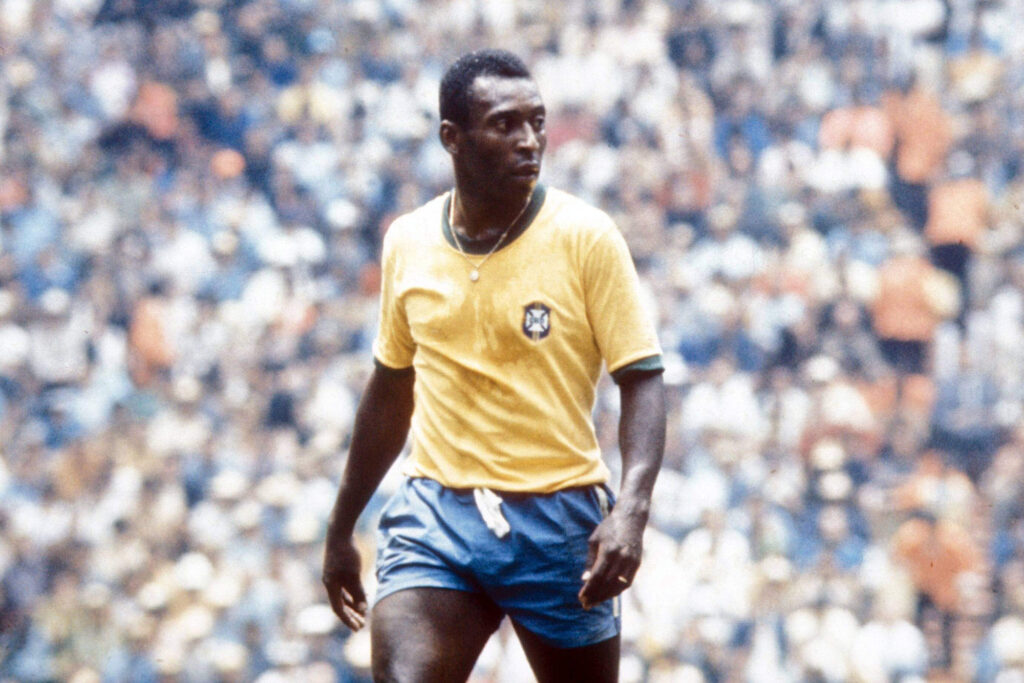
The Beginning: The Teenage Phenomenon.
Pelé was born Edson Arantes do Nascimento in Três Corações, Brazil, on October 23, 1940. Coming from a disadvantaged household, his love for football began at an early age, when he would make use of sock balls for play. His father, an ex-footballer, furthered his son’s passion and work toward developing his skills. At 15 years, he was signed by Santos FC, one of the bigger clubs in Brazil; it did not take him long to make an impact. At 16 years, he was the top scorer of the Brazilian League. Pelé’s speed, skill, and intelligence made him stand apart and it was obvious he was a special talent.
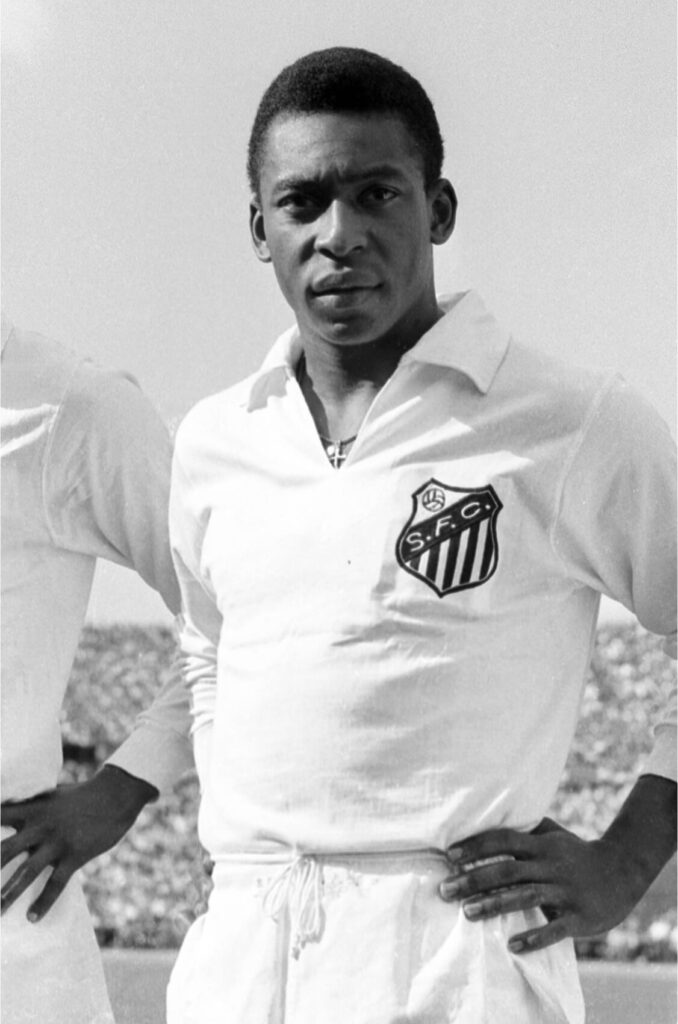
At the age of 17, Pelé was drafted to represent Brazil in the 1958 FIFA World Cup in Sweden. Despite being the youngest player at the tournament, he soon established himself as its brightest star. He scored a hat-trick in the semi-final against France and scored twice in the final against Sweden to help Brazil win their first-ever World Cup. His rise from a poor teenager to a world champion warmed the hearts and made him a symbol of hope.
Peak Years: Unprecedented Success
The 1960s were the peak years of Pelé’s club career. With Santos FC, Pelé won numerous domestic titles, including the Campeonato Paulista (state championship) and national competitions. He helped Santos dominate not only in Brazil but also internationally. The club won two Copa Libertadores titles (1962, 1963), South America’s top club competition, and two Intercontinental Cups, defeating European champions like Benfica and AC Milan.
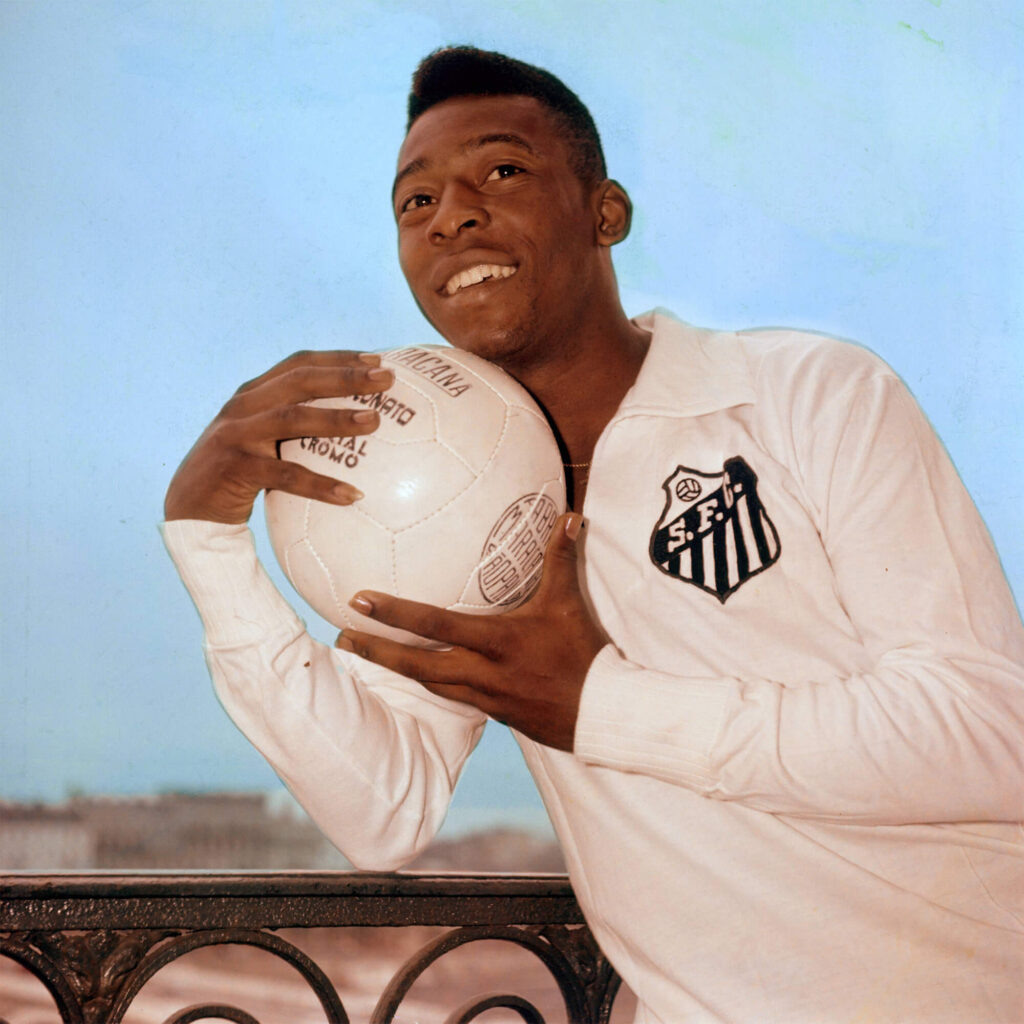
Pelé’s incredible goal-scoring record became legendary. In his career, he scored over 1,000 goals, with many coming in official matches. His ability to score from all positions—whether with his head, left foot, right foot, or even bicycle kicks—showed his completeness as a forward. Pelé wasn’t just a goal scorer; he was a team player, setting up chances and creating magic on the field.
During this period, Pelé became a national hero in Brazil. His performances united a country and gave pride to millions of Brazilians during times of political and economic struggles.
Technical Innovation: Complete Player Philosophy
Pelé’s style of play redefined the role of a forward. While many strikers were focused only on scoring goals, Pelé was a complete player. He could dribble past defenders, make accurate passes, read the game intelligently, and finish with deadly accuracy. His athleticism, strength, and balance made it difficult for defenders to stop him.
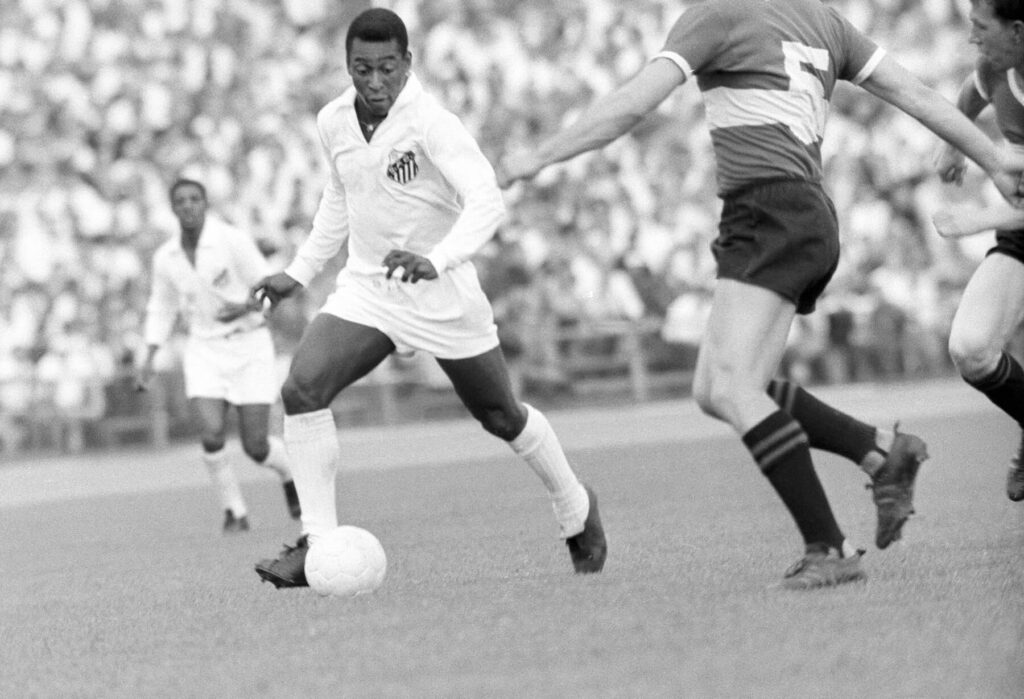
One of Pelé’s greatest strengths was his football intelligence. He could anticipate plays, find spaces others couldn’t, and make quick decisions. His technical abilities were years ahead of his time, combining skills like feints, backheels, and volleys in a way few had seen before.
Pelé also introduced creativity into football. He played with flair but never forgot the importance of teamwork. His playing style became the perfect balance between art and efficiency. Many experts believe Pelé set the blueprint for what a modern footballer should be: technically gifted, physically strong, and mentally sharp.
International Glory: Three World Cups
Pelé’s crowning achievements came in the FIFA World Cup, where he showcased his talents on the biggest stage.
In 1958, he amazed the world as a teenager, scoring six goals in four matches, including a spectacular performance in the final. In 1962, Pelé started the tournament strongly but suffered an injury after the second match. Despite his absence, Brazil still won the title, making Pelé a two-time world champion at just 21.
The 1966 World Cup in England was a disappointment. Pelé faced harsh treatment from defenders and suffered multiple injuries. Brazil was eliminated early, and Pelé considered retiring from international football. However, he returned with a mission in 1970.

The 1970 World Cup in Mexico is considered Pelé’s greatest moment. He led one of the best football teams ever assembled, featuring stars like Jairzinho, Tostão, and Carlos Alberto. Pelé scored four goals in the tournament, including a header in the final against Italy. His assist to Carlos Alberto for Brazil’s fourth goal in the final is often called one of the greatest goals in World Cup history. Brazil won 4-1, and Pelé became the only player to win three World Cups, a record that still stands today.
Legacy: The Global Ambassador
Pelé retired from international football in 1971 and left Santos in 1974 after scoring an official 643 goals for the club, which remained a record for decades. He later joined the New York Cosmos in 1975, helping popularize football in the United States. His time in America attracted massive attention and laid the foundation for the growth of soccer in the country.
Off the field, Pelé became a global ambassador for football. He promoted the sport in every corner of the world, met world leaders, and worked for charitable causes. Pelé also served as Brazil’s Minister of Sports and a United Nations goodwill ambassador.
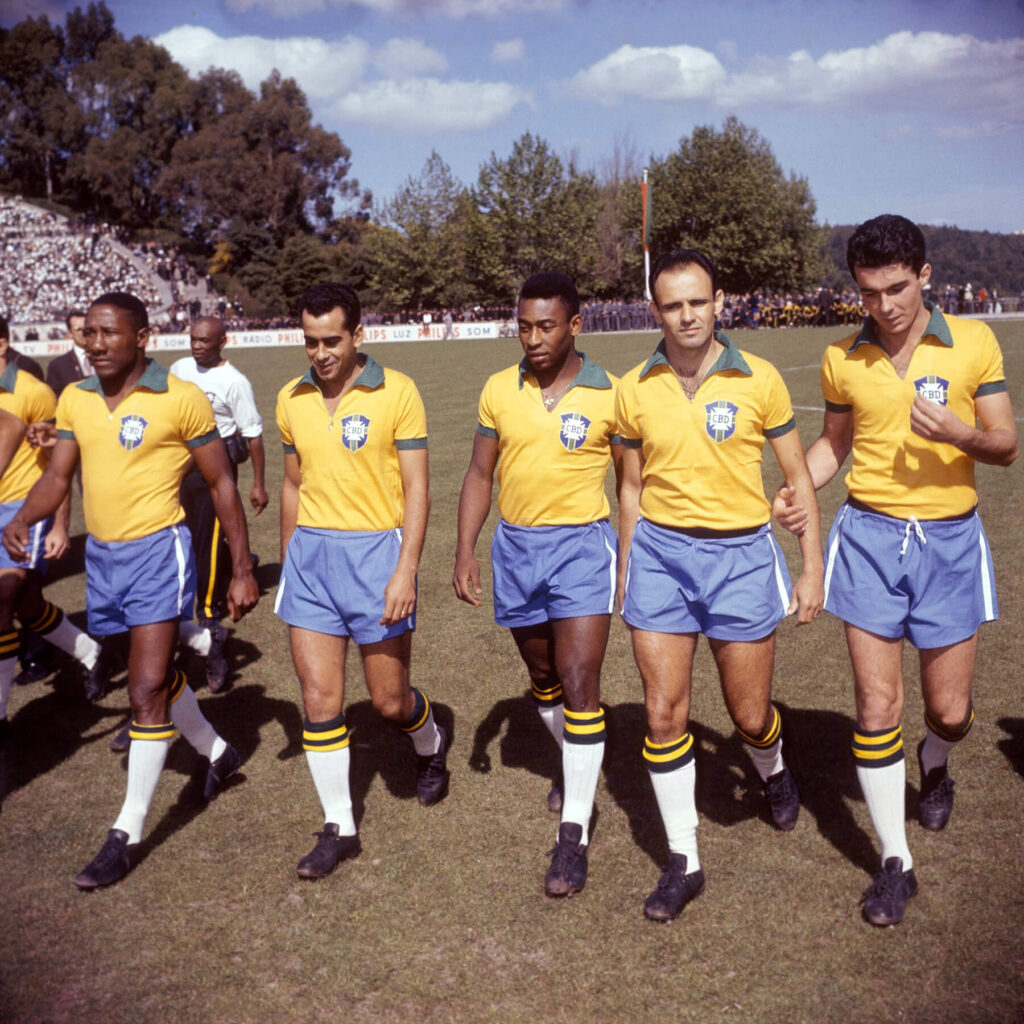
Pelé’s influence goes beyond statistics and trophies. He made football accessible to everyone, especially those from poor backgrounds. His journey from the streets of Brazil to global fame inspired millions. Football’s universal appeal today owes much to Pelé’s magic and charisma.
Pelé passed away in December 2022, but his legacy remains immortal. Players like Lionel Messi, Cristiano Ronaldo, and Kylian Mbappé have all acknowledged Pelé’s influence on their careers. Modern football, with its mixture of skill, athleticism, and showmanship, reflects the standard Pelé set decades ago.
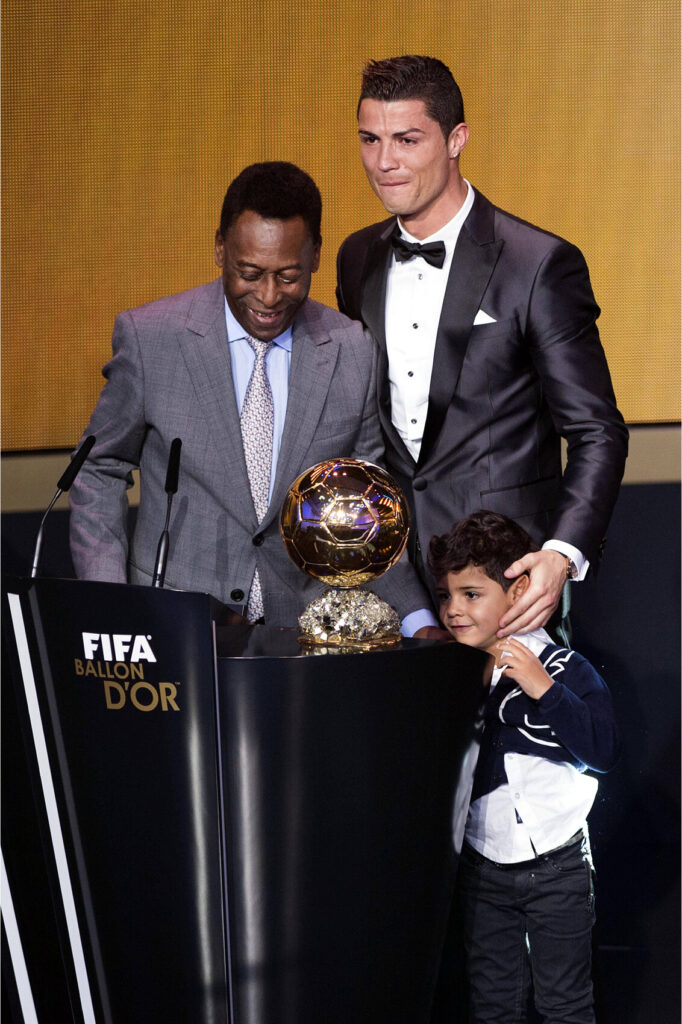
The Eternal King of Football
Pelé was more than a footballer; he was a cultural icon who changed how the world viewed the sport. His three World Cups, unmatched goal-scoring records, and beautiful style of play made him the first true global football superstar. From a barefoot boy in Brazil to “O Rei” admired around the world, Pelé proved that greatness comes from talent, hard work, and joy for the game.
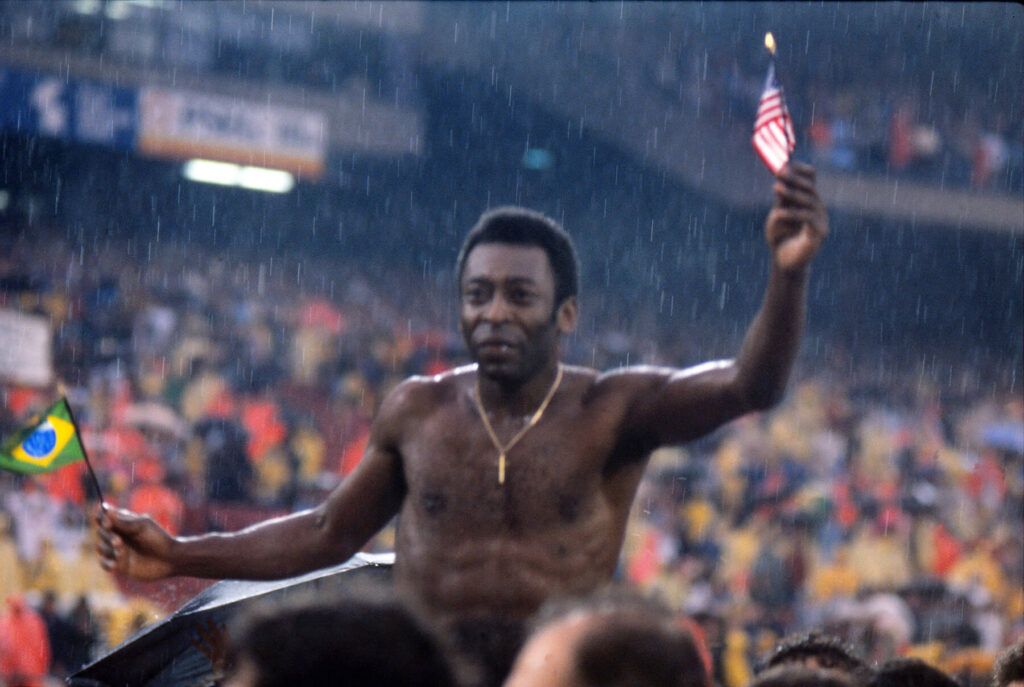
His name remains synonymous with football excellence. For millions, Pelé is not just a legend. He is the King who redefined what was possible on a football field.
